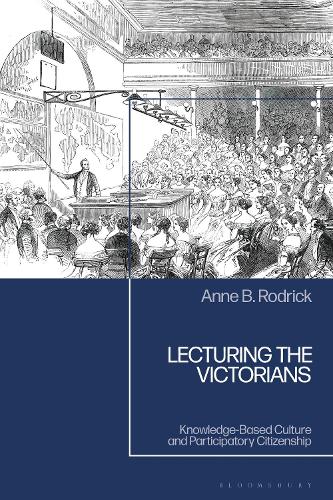
Lecturing the Victorians: Knowledge-Based Culture and Participatory Citizenship
(Paperback)
Available Formats
Publishing Details
Lecturing the Victorians: Knowledge-Based Culture and Participatory Citizenship
By (Author) Professor Anne B. Rodrick
Bloomsbury Publishing PLC
Bloomsbury Academic
19th February 2026
United Kingdom
Classifications
Professional and Scholarly
Non Fiction
History: specific events and topics
Social and cultural history
Oral history
Physical Properties
Paperback
288
Width 156mm, Height 234mm
Description
We are a much-lectured people, wrote Robert Spence Watson in 1897. Beginning at mid-century, cities and towns across England used the popular lecture for purposes ranging from serious education to effervescent entertainment and from regional pride to imperial belonging. Over time, the popular lecture became the quintessential embodiment of Victorian knowledge-based culture, which itself ranged from the production of new knowledge in the most elite of learned societies to the consumption of established knowledge in middle-class clubs and the hundreds of humble mechanics institutions initially founded to provide scientific instruction to workers.
What did the average Victorian talk and think about How did the knowledge-based culture of lecture and debate enable men and women to demonstrate both civic engagement and cultural competence How does this knowledge-based culture and its changing expression give us ways to look at Victorian citizenship long before the extension of the franchise With engaging and accessible prose Anne Rodrick draws from a variety of primary sources to provide fascinating answers to these pertinent questions.
Based on the analysis of several thousand lectures and debates delivered over more than 50 years, this book digs deeply into what those individuals below the most elite levels thought, heard, debated, and claimed as a badge of cultural competence. By the turn of the 20th century, the popular lecture was competing for attention with new institutions of leisure and of higher education, and the discourse surrounding its place in contemporary England helps illuminate important debates over access to and deployment of knowledge and culture.
Author Bio
Anne B. Rodrick teaches European history at Wofford College, USA, where she also directs the Humanities program and the Medicine in the Liberal Arts Program.
